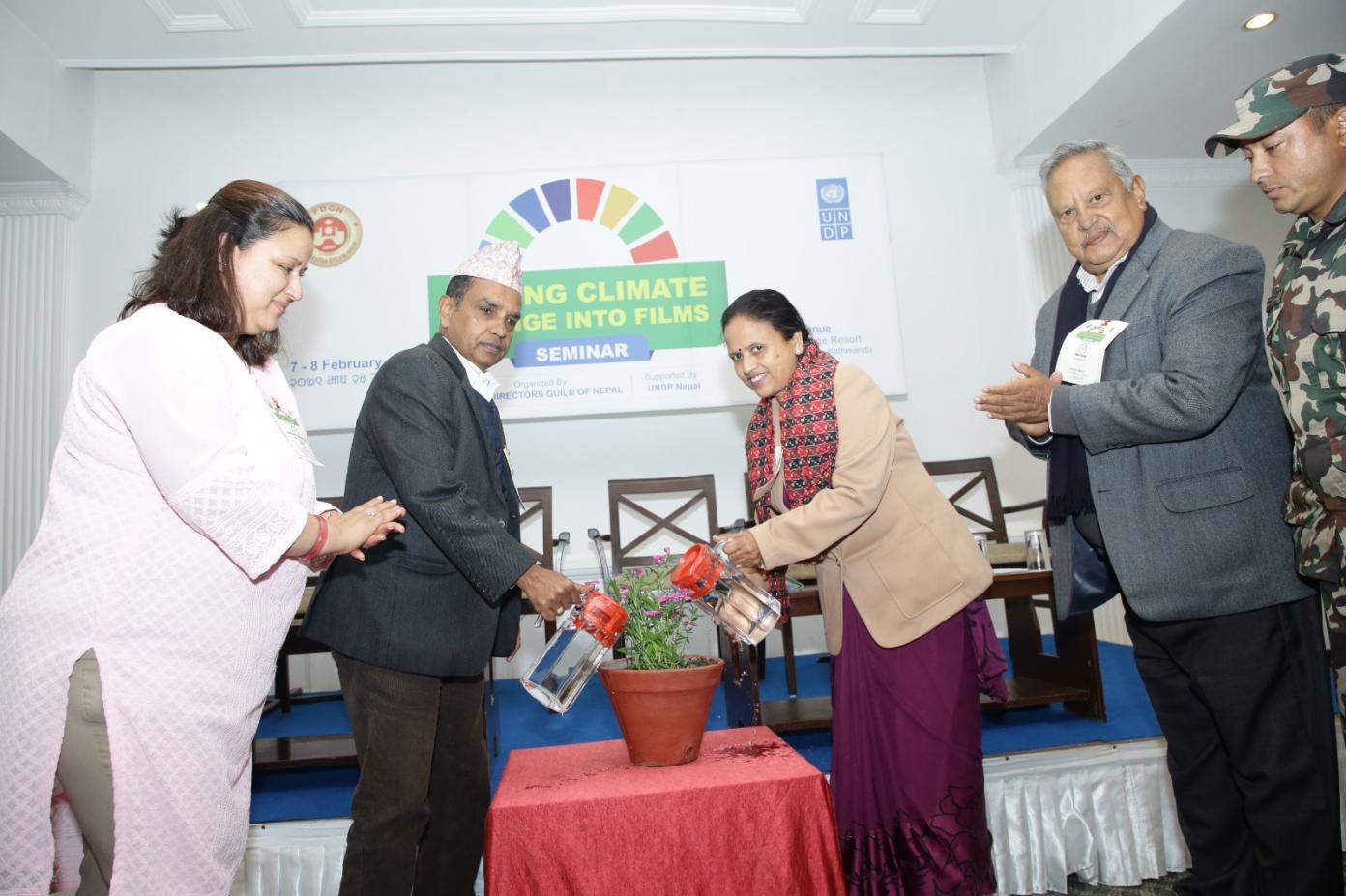
Water Conservation: 7 Simple Ways to Save Water at Home and in Your Business
Water is one of our most precious resources, yet it is often wasted without thought. ...

Nepal’s cinema directors and writers joined forces to introduce many films advocating climate action by the end of this year.
“Climate change is the greatest threat to humanity today. We are proud to contribute to the universal cause, however small our film industry may be,” said Nir Shah, Nepal’s legendary actor and film director. “We will strongly advocate to include climate change messaging in scenes and dialogues of our cinemas. We are expecting to see many films advocating for climate change by the end of this year.”
The film writers and directors issued a declaration last Wednesday expressing their firm commitment to take up the climate change issue through films.
The declaration followed a two-day seminar on “Coding climate change into films” organized by Film Directors Guild Nepal with the support of the United Nations Development Program (UNDP) that brought together over 30 representatives from the Nepali film industry, including script writers, directors, and actors.
“This is probably one of the first interactions between climate experts and cinema writers. I can already see several opportunities for cinemas to contribute to raise public awareness on climate change,” said Sushant Shrestha, film producer and advisor at the Film Development Board of Nepal.
“Inserting messages around environment conservation and climate change can be done effectively only when you truly believe in them and are deeply concerned about the matter. It is a highly creative work and has to come from your heart, or else it will be a complete fiasco,” said Pradip Bhattarai, director of Mahapurush, which is said to be the first climate neutral Nepali film.
Film actor, writer and director Khagendra Lamichhane announced that his upcoming film “Pashupati Prasad II” will not just have some strong messages aimed at influencing people’s behavior to conserve the environment but also walk the talk on climate change. “We consumed around 30,000 bottles of water while shooting our last film. All were single-use plastic bottles. Today, I am more than happy to announce that I will ban plastic bottles this time around, which will save 30,000 plastic bottles from adding into waste,” said Lamichhane.
Participants of the seminar underscored the need for some policy incentives to motivate film producers and urged the government to look into the possibilities. Minister of Communication and Information Technology Rekha Sharma pledged to table a bill on film, that has been pending since years, at the parliament, incorporating possible incentives for filmmakers.
“Films play a big role in changing the norms and behavior of the people and raising awareness. There are many films on social issues but very few on environmental issues. The Ministry is committed to address the policy hurdles, if any,” said Sharma adding that the films should also contribute to raise awareness of the general public on the rights of women.
UNDP’s Resident Representative Ayshanie Medagangoda-Labe encouraged the film writers to take a proactive role in changing social norms that help address the fight against climate change and gender inequality. She also underscored the links between gender and climate change and pledged to support connecting Nepal’s film fraternity with the knowledge and technology available in the global market. Climate change, she said, disproportionately affects women, economically poor and other vulnerable groups – those who are more exposed to climate hazards and don’t have adequate resources to cope with crisis situations. UNDP’s Vijaya Singh and Deepak KC unpacked four of 17 goals under the Sustainable Development Goals (SDGS) – health and well-being (SDG3), clean energy (SDG7), climate action (SDG13) and live above land (SDG15) – covering their possible links with climate change.
“It is great to see such a huge commitment from film makers to take a proactive role in climate advocacy. With this seminar, I see you have gained a good understanding of the urgency of the matter. The government is committed to help the film fraternity to articulate it through needful promotional measures including capacity development of filmmakers,” said Mahesh Parajuli, Under Secretary, Ministry of Communications and Information Technology.
During the seminar, screenplay writer Samipya Raj Timilsena presented a draft paper on opportunities of integrating climate change into films. The film makers sat on an intensive two-day orientation and interaction on climate change in Nepal’s context facilitated by director Nir Shah, Sushant Shrestha, Janak Raj Parajuli, Rakshya Singh and others.
اترك تعليقا